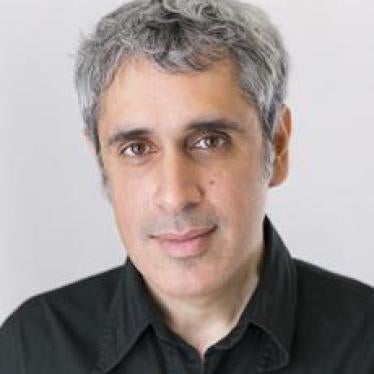John Osas, 32, was nervous after boarding a frail fishing ship with his family and hundreds of other sub-Saharan Africans fleeing the war in Libya.
The Nigerian painter knew the risks: many had perished after attempting the same journey across the Mediterranean. He had lived and worked in Libya for eight years, but was determined to escape to a place where his wife, Gift, and their young children would no longer fear the aerial bombardments that had become part of daily life in Tripoli.
The journey to freedom soon became a nightmare for the Osas family and the 850 passengers crammed on board with them. Even before the vessel set sail, the captain walked away because of the overcrowded conditions, leaving the ship in control of inexperienced people. Not long after setting sail on May 28, the ship had problems with its steering and power, and eventually became lost.
By the end of the second night, when they should have reached Europe, passengers ran out of food and water. Desperate, they drank seawater -- Osas even used it to mix his youngest daughter's formula. Witnesses we interviewed said some passengers jumped or were thrown overboard.
The vessel eventually ran aground near the Kerkennah islands of Tunisia, 300 kilometers northwest of Tripoli. On day five, Tunisian coast guard and fishing boats began a rescue operation, but desperate passengers rushed to one side of the ship, and it capsized. Osas survived along with his wife and three children, Miraco, Marvelous and Matthew. But 200 people perished. "I will never forget the horrible nightmares that I saw and heard on that ship," he told us when we met on June 9. "Everything that could have gone wrong, did."
Tunisian authorities took the survivors to camps near the Libyan border. There, they joined thousands of refugees from 20 countries in three makeshift camps. Reluctant to return to their countries of origin because of insecurity or poverty, and unable to relocate abroad because many of them are presumed to be economic migrants, these displaced people have become the invisible victims of a conflict not of their making.
Conditions in some of the camps are grim. And although they left Libya to escape violence, inhabitants at the main camp on the border, Choucha, find themselves vulnerable again. A group of Eritreans, including one in a hospital with extensive burns, told us about the night a suspicious fire burned down two tents, killing four of their countrymen.
Camp residents and other observers described outbursts of violence in the Choucha camp on May 24 that left at least two Sudanese dead. More than half a dozen camp residents showed us their injuries, both gunshot wounds and broken bones. The accounts of what happened and who was responsible vary considerably. Camp residents also alleged that the attackers looted the residents' meager possessions and burned a few dozen tents to the ground.
Life in Libya was no idyll for sub-Saharan Africans, and some told us they endured time and abuse in horrible detention facilities. But some have opted to return to Libya rather than languish in the refugee camps, where they can't work, or return to their home countries. These displaced persons can't stay forever in camps in the Tunisian desert, and new options are more urgent given the insecurity there now.
The Tunisian government needs assistance to improve security and conditions in the Choucha camp so that proper refugee screening can occur. Some residents may prefer to wait to return to Libya when they think it's safe; some may be able to return to their home countries without risk; but others may not be able to return home or to Libya so need other solutions.
People fleeing Libya by boat are at particular risk. More than 1,500 people have already drowned or are missing. In one instance in late March and early April, survivors said that military vessels in the Mediterranean failed to save a drifting boat, resulting in 63 deaths. NATO needs a more effective policy for rescuing people fleeing Libya by sea.
People like the Osas family shouldn't have to choose between the desert and the deep blue sea.
...
Samer Muscati is a Researcher and Sidney Kwiram a Consultant for the Middle East and North Africa Division at Human Rights Watch.







